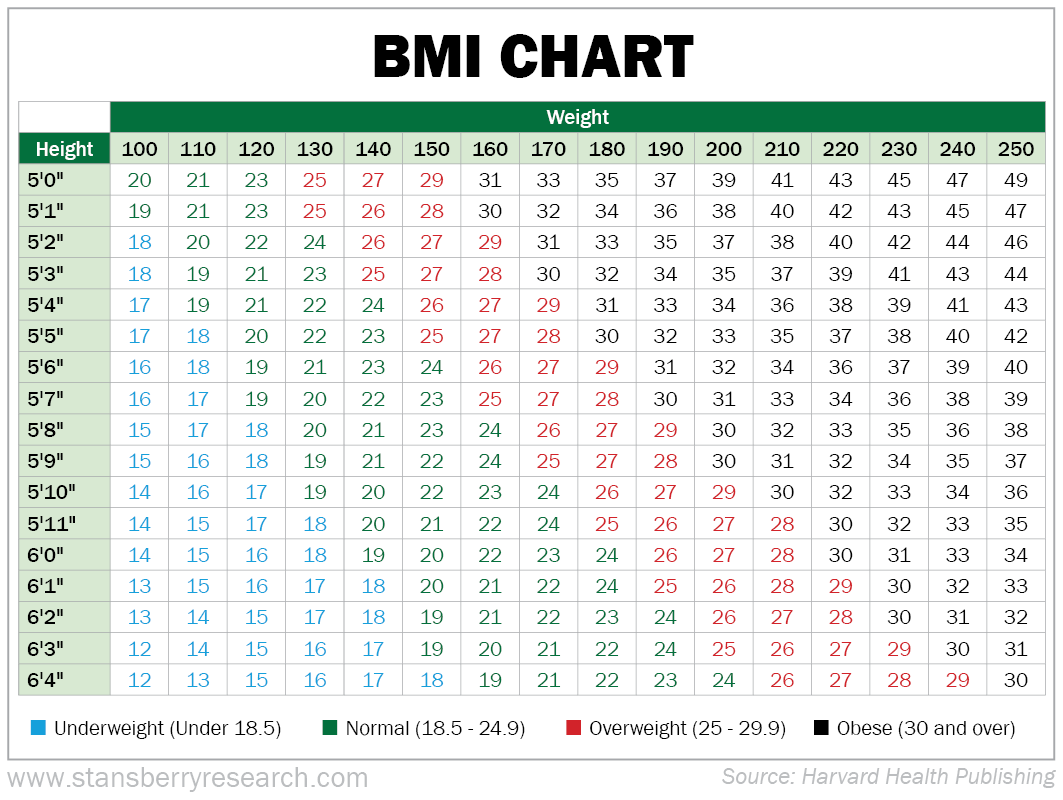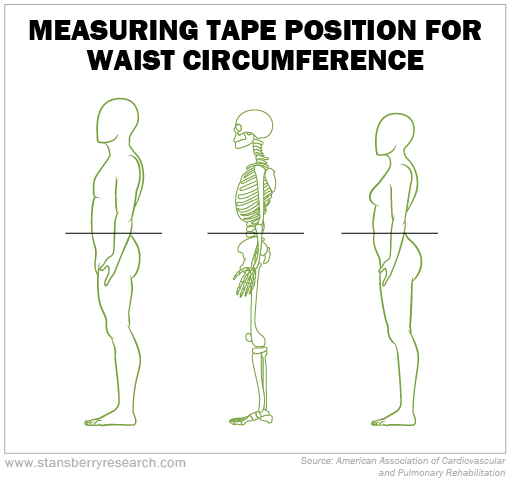Ten years ago, Nick Trefethen challenged a long-held belief of the medical world.
Trefethen suggested changing the body mass index ("BMI") calculation. The BMI is what medical professionals have used for decades to determine whether a person's weight is within a healthy range. Your BMI calculation comes from dividing your weight (in kilograms) by your height (in meters squared).
According to Trefethen, a professor of numerical analysis at the University of Oxford, the current calculation divides the weight by too much in short people – leaving short people thinking they are thinner than they actually are – and divides the weight by too little in tall people – leaving tall people thinking they are fatter than they really are.
Trefethen believes the formula for BMI should be this: weight(kg)/height(m)^2.5. So instead of meters squared, you would use an exponent of 2.5.
He told the Economist in an interview that the formula has likely stayed the same because "perhaps nobody wants to rock the boat."
Perhaps, indeed.
Of course, our longtime readers know that we're no strangers to controversy.
Recently, I've shared why I think the calculation is flawed, citing that it doesn't factor in important variables like muscle mass, ethnicity, bone density, or sex differences.
Many doctors still rely on it as an overall measure of health, which can be misleading...
When your BMI is calculated, the resulting number falls into a range that puts you in the category of underweight, normal weight, overweight, or obese. Have a look at the BMI table below and see where you stack up...

I agree that it's important to keep a general eye on your weight... Obesity increases the risk of a lot of issues including diabetes, heart disease, liver disease, and arthritis.
But here's the big problem...
Because the formula overgeneralizes your weight distribution, people can easily fall into the wrong category. Plenty of researchers and health professionals are aware of this issue, yet nothing seems to change when it comes to using this skewed metric.
So an extremely healthy, well-muscled athlete can fall into the overweight category. Or similarly, a young woman might fall into the underweight category despite good health for her frame.
That's why you shouldn't rely heavily on your BMI as an indicator of your general health.
Turns out, some studies even show that carrying a little extra weight can be advantageous to your health...
One such study from the University of Virginia analyzed nearly 200,000 cases of patients who underwent general and vascular surgery to determine if BMI was associated with the likelihood of surviving the procedure. The researchers found that patients with a BMI of less than 23.1 (considered "normal weight") were 40% more likely to die within 30 days of surgery than patients with a BMI from 26.3 to 29.6 (folks considered "slightly overweight").
Another study out of the University of California took a deep dive into examining cardiometabolic health misclassifications under standard BMI categories. The U.S. Equal Employment Opportunity Commission proposed allowing employers to financially penalize employees (up to 30% of health insurance costs) for failing to reach certain "health criteria," like reaching a certain BMI.
After examining various participants' health measures – like blood pressure, cholesterol, and blood sugar levels – the researchers found that nearly half of the overweight participants, 29% of the obese participants, and even 16% of the highly obese participants were actually metabolically healthy.
So instead of focusing solely on your BMI to tell you whether you're healthy or not, consider a number of factors... like your eating habits, daily amount of activity, and waist circumference.
In our essay last Friday, we shared a great study from our friends across the pond, which showed that Americans carry more weight around their waists than the English. The researchers wanted to know why Americans and Brits had similar BMIs, but Americans have a higher rate of diabetes.
They found the big difference was waist circumference. Turns out, this extra tummy weight – not a person's BMI – had a direct connection to their risk of developing Type 2 diabetes.
So a more accurate way to measure your risk – and also reduce your risk – is by paying attention to your waist circumference. To figure out what yours should be, you take your height (in inches) and divide it in half. Your waist circumference should be that number or less. So an average male who is 5-foot-9 should have a waist of about 34.5 inches.
When measuring your waist circumference, place the measuring tape around your waist in the spot just above your hips and just below your ribs. Make sure the tape is snug but not too tight on your skin. Also, get your measurement reading on an exhale, as an inhale will make your waist slightly bigger.

As we explained last Friday, the reason waist size matters is because of visceral fat. The first layer of fat under your skin is subcutaneous fat (the fat you feel when you pinch your skin). Under that layer is the visceral fat – which wraps around your organs. Visceral fat builds as we age, when we eat fatty foods, or when we don't exercise.
The problem with visceral fat is that it triggers inflammatory responses and can interfere with our insulin functioning. That means it's a contributor to things like Type 2 diabetes and fatty liver disease.
There's good news though... Our favorite diet helps reduce visceral fat. According to an Italian study published in Nutrition & Diabetes, closely following a Mediterranean diet was associated with a reduced risk of becoming overweight or obese during the study's 12-year duration.
Remember, your weight, your BMI, and your waist circumference are not a full picture of your health. Gain an understanding of all the factors that affect your health and weigh all the information to get a better picture of your overall health.
And if you haven't tried a Mediterranean diet yet, don't wait any longer... It will help not only your waistline but your memory and digestive system, too. It was just voted the No. 1 best diet overall (again) for 2023 by U.S. News & World Report.
What We're Reading...
- The do's and don'ts of the Mediterranean diet.
- Something different: How microplastics are infiltrating the food you eat.
Here's to our health, wealth, and a great retirement.
Dr. David Eifrig and the Health & Wealth Bulletin Research Team
January 10, 2023
